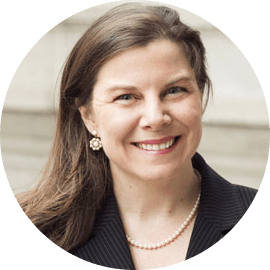
Managing your finances can feel overwhelming, even more so during life’s biggest transitions. Whether you’re navigating a divorce, adjusting to life after the loss of a spouse, or stepping in to help aging parents with their financial affairs, it’s easy to feel buried by the sheer volume of day-to-day money tasks. But it doesn’t have to be this way.
In a recent episode of my podcast, Financially Ever After, I had the pleasure of sitting down with Peter and Jacob Gordon, a father-son duo who help people bring order to financial chaos. Their business grew out of personal necessity: supporting their own aging family members through financial challenges. Today, they guide solo agers and overwhelmed families through the nitty-gritty of organizing personal finances, with a focus on reducing stress and restoring peace of mind.
Our conversation was full of practical advice, including simple steps that anyone can take to stay financially organized, especially during life’s more complicated seasons. I want to share some of my favorite takeaways with you.
- Start With Access: Know Where Everything Is
Before you can organize your finances (or help a loved one get organized), you need to know what you’re working with. That means gaining access to:
- Bank accounts
- Credit cards
- Investment accounts
- Insurance policies
- Estate planning documents
- Important passwords and contacts
This step alone can create enormous clarity. It’s amazing how much mental energy is freed up once you’re no longer wondering, “Where is that account? Did I pay that bill?” For those going through divorce or dealing with a recent loss, this can be an emotional process, but it’s a crucial foundation for financial security.
- Track What’s Coming In and Going Out
One of the simplest ways to reduce financial overwhelm is to get a clear picture of cash flow. What’s coming in? What’s going out? There are fantastic tools available to make this easier. Apps like Quicken, You Need a Budget (YNAB), Monarch Money, or Personal Capital can help you track income, expenses, and even net worth. For those managing finances for aging parents, these tools also provide an easy way to monitor for unusual activity or spending patterns.
Remember, cash flow is the heartbeat of your financial life. Staying on top of it allows you to make informed decisions with confidence.
- Watch for Red Flags of Disorganization
Financial disorganization often leaves a trail of warning signs. Be on the lookout for:
- Missed or late bill payments
- Unopened mail piling up
- Bounced checks
- Confusion about account balances or debts
These red flags can indicate that someone needs help, whether it’s due to cognitive decline, emotional overwhelm, or simply not knowing where to start. Addressing these issues early can prevent more serious financial consequences down the road. If you see these signs in yourself or a loved one, it’s time to take action. Don’t wait!
- Protect Against Identity Theft: Freeze Your Credit
One of the most effective (and underutilized) ways to protect yourself from identity theft is to freeze your credit with the three major bureaus: Equifax, Experian, and TransUnion. This doesn’t affect your credit score, it’s free, and it prevents new accounts from being opened in your name without your consent. We shared step-by-step instructions in the podcast show notes, but it’s an easy process you can start today. Especially for seniors and those in vulnerable life transitions, this extra layer of protection is worth the effort.
- Build Your Financial Support Team
You don’t have to manage all of this alone. One of the most important steps you can take is to surround yourself with trusted professionals who can lighten the load:
- A financial advisor to help you plan and invest wisely.
- An estate attorney to ensure your legal documents are up-to-date.
- A daily money manager to assist with bill pay and record-keeping.
- A care manager to coordinate broader life care needs.
Life transitions are emotionally and mentally draining. Having the right team in place gives you back precious time and energy to focus on what matters most.
- Loneliness and Financial Health: An Overlooked Connection
One insight that really stuck with me from my conversation with Peter and Jacob is how intertwined financial organization is with emotional well-being. Many people don’t just need help with their bank accounts or budgets. They need someone to call when life feels confusing, isolating, or uncertain. For widows, divorced individuals, and solo agers, loneliness is a very real risk factor—not just emotionally, but financially, as well.
Having a trusted person or professional to talk through financial decisions can prevent costly mistakes born out of stress or isolation. Financial organization will help you create a sense of control, confidence, and connection.
Final Thoughts: Clarity Brings Calm
I often say that financial clarity is a form of self-care. When life feels chaotic, taking steps to get organized, no matter how small, can be grounding and empowering. Whether you’re facing a major life transition or simply want to be more proactive, the tools and tips we discussed in this podcast are a wonderful place to start.
Listen to the full podcast episode to learn more here.
